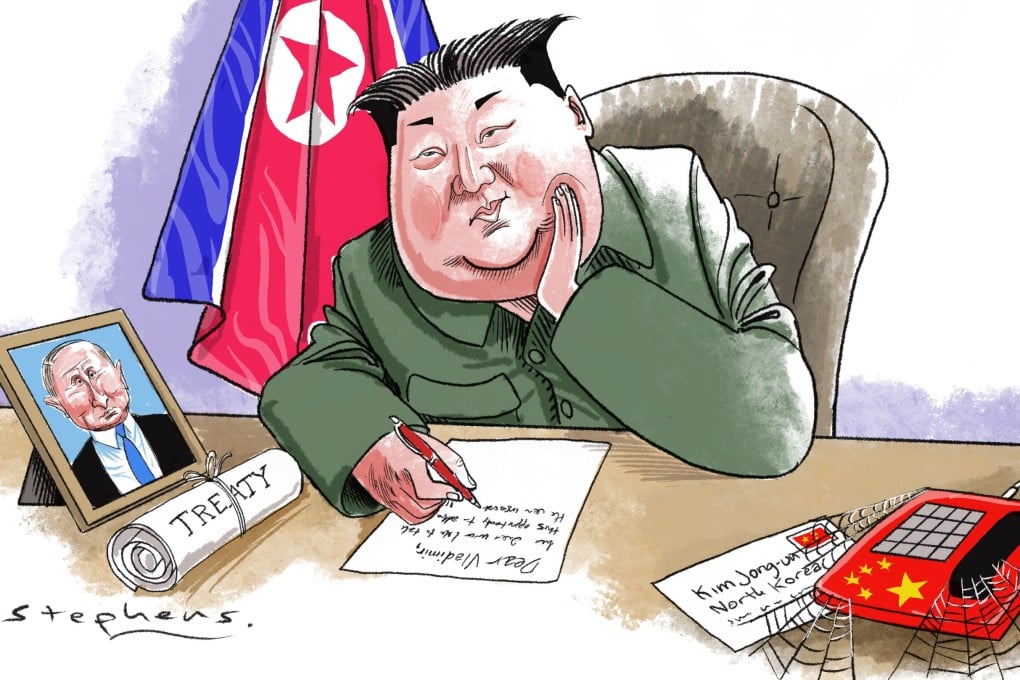Advertisement
Opinion | China-North Korea relations start the new year on a new low
Between Kim’s outpourings to Putin and hardly a mention of Xi’s greeting is a message: North Korea cares little about saving face over relations with Beijing
Reading Time:4 minutes
Why you can trust SCMP
5

New year, new greetings. And the most notable feature of North Korea’s festive diplomacy is its emphasis on its relationship with Russia – and its downgrading of its ties with China. Clearly, Pyongyang intends to flatter Russia and pressure China to extract benefits from both while operating from a stronger position. This approach is reminiscent of the late Kim Il-sung’s tactics in securing maximum benefit from the Soviet Union and Mao-era China.
When his grandson, Kim Jong-un, sent New Year greetings to Russian President Vladimir Putin on December 30, there was no mention of peace but instead an emphasis on hopes of a war victory and the “warmest comradely trust”.
North Korean media reported: “Hoping that the new year 2025 will be recorded as the first year of war victory in the 21st century, when the Russian army and people defeat neo-Nazism and achieve a great victory, he wished Vladimir Vladimirovich Putin greater success in his responsible and heavy state leadership activities and the Russian people prosperity, well-being and happiness.”
Kim repeatedly mentioned the strategic partnership with Russia, clearly aiming to highlight North Korea’s importance to Moscow and bolster its international status. In a heavily militaristic tone, Kim extended his “best wishes to the fraternal Russian people and all the service personnel of the brave Russian army in the name of his own, the Korean people and all the service personnel of the armed forces”.
This voicing of support, from one army to another, emphasises Pyongyang’s contribution to Russia’s war effort, in particular, the sending of thousands of North Korean soldiers to fight Ukraine. It is a message to the world, including the United States, Japan, South Korea and China, that the new military alliance between Pyongyang and Moscow is going strong, and probably also meant to boost morale at home.
Clearly, at least before Russia’s war on Ukraine ends, the atmosphere of cooperation between Russia and North Korea is likely to continue. For both parties, this is an objective necessity, with North Korea’s need being particularly strong.
Advertisement

